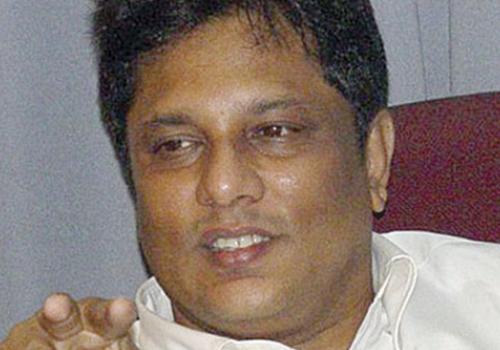Home >> News >> 2010 >> Jan >> Tribute to Lasantha Wickrematunge, a journalist who died fighting for a free press
Tribute to Lasantha Wickrematunge, a journalist who died fighting for a free press

PROMINENT journalists, human rights lawyers and politicians gathered in Fitzrovia on Friday to recognise the importance of international press freedom.
The event marked the one-year anniversary of the assassination in Sri Lanka of Lasantha Wickrematunge, a journalist, human rights activist and fierce government critic.
As the founding editor of English-language newspaper The Sunday Leader, Wickrematunge was known for his outspoken editorials exposing government corruption and war atrocities in Sri Lanka.
He was gunned down on January 8 2008 while on his way to work in one of the busiest suburbs of Colombo, Sri Lanka’s commercial capital.
Belsize Park human rights lawyer Helena Kennedy QC was among the speakers celebrating his career as the strongest liberal voice of democracy in the then war-torn country.
Heather Blake, of Reporters Without Borders – a non-governmental agency that monitors and protects press freedom around the world – also spoke at the memorial event in Fitzroy Square.
“Journalists are the instigators of change,” said Ms Blake. “They are public historians in many ways, and those living under tyrannical governments are hated for it because they attempt to uphold democracy and freedom of speech.
“Journalists risk their lives to bring free speech and we must pay homage to them. We must pay homage to Lasantha, a journalist who died for something he believed in where the cause was greater than the ego.”
Wickrematunge’s indictment of government tyranny led to frequent attacks on himself and his staff. And in a chilling twist to events, the journalist wrote an editorial in the days before his death, predicting his own murder.
In the article, published after his death, Wickrematunge wrote: “When finally I am killed, it will be the government that kills me. In the wake of my death I know you will make all the usual sanctimonious noises and call upon the police to hold a swift and thorough inquiry.
“But like all the inquiries you have ordered in the past, nothing will come of this one, too. For, truth be told, we both know who will be behind my death, but dare not call his name. Not just my life, but yours too, depends on it.”
One year on from the brutal assassination, which took place in broad daylight, no one has yet been held accountable. The case has been adjourned a total of 24 times, with the primary witness currently missing.
Baroness Kennedy told the audience how threats were a daily occurrence for Sunday Leader journalists, who are regularly pulled out of cars and beaten with sticks.
One threat received by Wickrematunge came in the form of the final page of one of his newspapers covered in red paint to look like blood telling him he would die if he carried on writing.
Ed Davey, the Lib Dems’ shadow foreign secretary, said: “Anyone who has read the powerful editorial published after Wickrematunge’s death will be more determined to campaign for the values of this great journalist. Sri Lanka desperately needs its brave journalists to carry on writing in the way that he did.
“Now more than ever Sri Lanka needs a free press. We want the spotlight on elections and we want those elections explained to people all over the world. We need the journalism of The Sunday Leader – it was fearless and it was balanced. We must not forget him and the values his journalism stood for.”
JOSIE HINTON




Comments
Post new comment